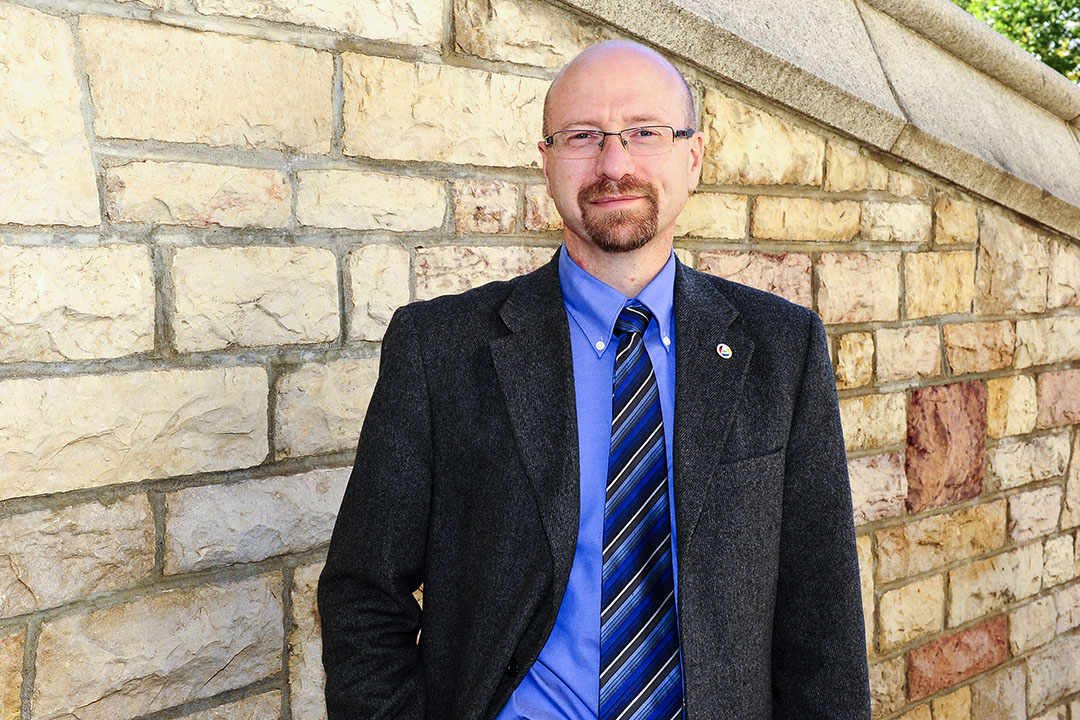
Dr. Cory Neudorf: A public health perspective
Dr. Cory Neudorf (MD’89) has called COVID-19 the biggest professional challenge of his career. As a public health physician and epidemiologist, he has spent his career devoted to health equity and public health advocacy.
By AMANDA WORONIUK“I've dealt with large epidemics before. I've even had leadership roles with previous pandemics, but this particular one was of a scale and scope that we haven't seen in over a century,” said Neudorf, a professor and researcher in the College of Medicine’s Department of Community Health and Epidemiology (CH&E).
For more than 20 years, Neudorf served as chief medical officer for the former Saskatoon Health Region, now part of the province-wide Saskatchewan Health Authority (SHA). Currently, he is the interim senior medical health officer with the SHA.
Neudorf is also involved with public health at the national level as the current president of the Urban Public Health Network of Canada, former president of both the Canadian Public Health Association and the Public Health Physicians of Canada, liaison member with the Regions for Health Network (WHO Europe) and advisor for the Public Health Agency of Canada.
“(Public health) provides the chance to influence health and other policy and get more upstream on issues, rather than individual patient issues, which appeals to me,” said Neudorf.
Born and raised in Saskatchewan, Neudorf credits his local upbringing for his decision to remain in the province.
“I wanted to stay here if possible and (USask) was my first choice for medical school. I was glad to get accepted and get into medical school here. I didn’t have public health as a career choice at the time. I didn’t even know much about it at that point,” he said.
During medical school, Neudorf was going through rotations and none of the specialties had piqued his interest. It was only after looking through the Royal College specialty programs, he came across public health as an option.
“I made an appointment with Dr. Bruce Reeder (MD), a professor in the Department of Community Health and Epidemiology. I talked to him to get a better idea of ‘what do you do, what are the different career paths in that specialty, what types of things do you have to be good at if you want to succeed in that specialty,’ ” said Neudorf.
He completed an elective with Saskatoon’s medical health officer (MHO), Dr. Paul Gully (MD), and learned more about the role of a MHO and how that career path might be a good fit. Neudorf was hooked. He did residency training at the University of Toronto (U of T) and pursued a master’s degree in public health and epidemiology, also from the U of T, to round out his training.
Neudorf’s research focuses on improving health equity. Most recently, he led a research team that tracked the impact of public health responses to COVID-19. The data assessed how well public health measures worked across Canada and will be used to provide recommendations on how best to prepare for future pandemics.
Neudorf is also part of research teams led by his CH&E colleagues, including the national COVID Variant Rapid-Response Network led by Dr. Nazeem Muhajarine (PhD), a professor in the Department of Community Health & Epidemiology, who is investigating the COVID-19 virus variants, and the Saskatchewan rapid evidence response to COVID-19 to facilitate decision-making, led by Dr. Gary Groot (MD, PhD).
In addition to research, Neudorf has also supported national-level pandemic public health projects in a consultant role.
“I've been involved with reviews that are taking place from the Canadian Institutes of Health Research's (CIHR) Institute of Population and Public Health. I sit on their advisory board,” said Neudorf. “Our chief public health officer for the Public Health Agency of Canada (Dr. Theresa Tam)—her report this year is going to be focused on the future of public health—so I’m helping out with some of the consultations and reviewing drafts of that report.”
Throughout the pandemic, Neudorf has been featured in the media for his public health expertise. He was also a speaker at the college’s virtual Highlights in Medicine Conference and Reunion in August, where he shared how the pandemic has magnified inequities among vulnerable and marginalized populations.
Post-pandemic, Neudorf sees an opportunity to increase the population health approach throughout the health care system.
“COVID is an amplifier of pre-existing health equity issues or gaps in our society. It’s shone a spotlight on some of those inequities, and amplified those inequities,” said Neudorf.
“The pandemic and our response to it has had direct and indirect effects on the health system and society globally—giving us a chance to re-imagine the way we do our work and incorporate action on the determinants of health in new ways.”
